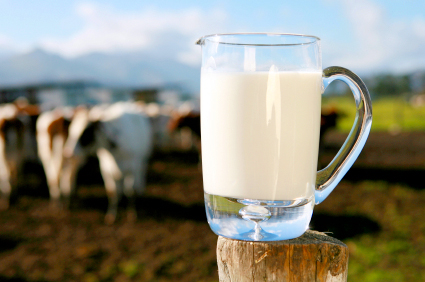Have you tried raw milk?
Whether it’s a tasty breakfast bowl of cereal, a delicious cake, or a steaming cup of hot chocolate, milk is found almost everywhere. The truth is that milk is one of the best sources of calcium and Vitamin D, so it’s an important part of every healthy diet.
But is raw milk a better option than the milk sitting on supermarket shelves?
Health Benefits of Raw Milk
There have been a number of studies done into the health benefits of raw milk, which included:
- Raw milk proved to be more effective than pasteurized milk at protecting your body against infections, rickets, tuberculosis, diarrhea, and tooth decay.
- Children drinking raw milk grew more than children that drank pasteurized milk.
- Animals that drink raw milk grow more, have more bone density, have organs that function better, show less signs of stress and anxiety, and suffer from anemia less than those that drank pasteurized milk.
- A number of studies conducted in Europe proved that drinking raw milk was able to protect against allergies and asthma – two major problems in the United States.
- The Mayo Clinic used raw milk as a cure in the 1990s, using it to deal with kidney disease, skin problems, UTIs, chronic fatigue, prostate health problems, cancer, and allergies.
Why Raw Milk?
The reason that raw milk has been thought to be much healthier for human consumption is due to the fact that it is unpasteurized.
Pasteurization is a process of heating the milk, which helps to kill off the bacteria that has been passed from the host body (the cow) into the milk. The heating doesn’t kill off ALL of the microorganisms, but just enough so that the milk is healthy and safe for human consumption. It also slows down the rate at which the milk spoils, as it kills off the microbes that would make it go bad.
However, while pasteurization does kill off the harmful microorganisms, it also kills off a lot of the good stuff as well. For example:
- Vitamin C is degraded by the pasteurization process, which is one of the factors believed to have caused an increase in infant scurvy in the late 1800s when the pasteurization process was introduced.
- Folate is a carrier protein found in milk, but it is rendered inactive by the pasteurization process. The same is true for the binding protein Vitamin B12.
- Vitamin A is a protein that is vital for healthy body function, but it is a very heat-sensitive protein. When milk is pasteurized, the vitamin is degraded – rendering it far less effective and making it harder for the body to absorb it from milk.
- Iron is needed for red blood cell production and healthy circulation, but the iron molecules in raw milk is destroyed when the milk passes through the pasteurization process.
These are just a few of the nutrients that are rendered inactive or destroyed when milk is pasteurized, but there are more. You can see why raw milk will be the healthier option in many cases.
Finding Raw Milk
The downside of drinking raw milk is that it can’t legally be sold in supermarkets and grocery stores. The only places where you can buy raw milk is directly from the farms. According to the Farm-to-Consumer Legal Defense Fund, you are legally able to buy it, but it takes work to find it.
Each state has different laws concerning the sale and purchase of raw milk, but it can be hard to find farms from which to purchase it. Thankfully, the Weston A. Price Foundation works to promote the sale of raw milk, so you can find a list of farms where it is sold in different states by following this link…











